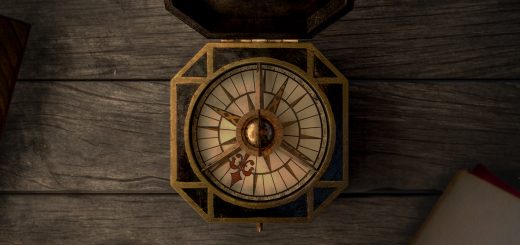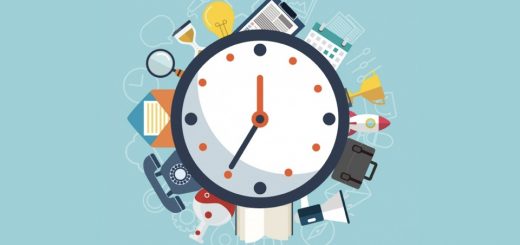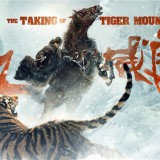7. Unity, Kindness, and Courage
March 16th 2020, Monday
Dear Blog,
Keeping doing the work even if you don’t feel like it is a sign of maturity, or stupidity, depends on how you see it. I am afraid I am in that stage of the journey in which showing up each morning is getting harder and harder, particularly when I have to stay at home the most of the time, when I found my life to be utterly unremarkable.
Within the Chinese communities in Europe, there is a lot of talk about flying back to China to avoid the coronavirus, because they feel China at this point is probably much safer than Europe. Should they get infected, they have a higher chance of getting help from the hospitals rather than being ignored as not severe. When the healthcare system is at capacity, it is always a challenge for morality. No one wants to choose between saving old people’s lives and young people’s lives since all lives are equal. But reality has never been kind to senior citizens.
What does this history teach us for the current Coronavirus epidemic?
First, it implies that you cannot protect yourself by permanently closing your borders. Remember that epidemics spread rapidly even in the Middle Ages, long before the age of globalization. So even if you reduce your global connections to the level of England in 1348 – that still would not be enough. To really protect yourself through isolation, going medieval won’t do. You would have to go full Stone Age. Can you do that?
Secondly, history indicates that real protection comes from the sharing of reliable scientific information, and from global solidarity. When one country is struck by an epidemic, it should be willing to honestly share information about the outbreak without fear of economic catastrophe – while other countries should be able to trust that information, and should be willing to extend a helping hand rather than ostracize the victim. Today, China can teach countries all over the world many important lessons about coronavirus, but this demands a high level of international trust and cooperation.
(…)Perhaps the most important thing people should realize about such epidemics, is that the spread of the epidemic in any country endangers the entire human species. This is because viruses evolve. Viruses like the corona originate in animals, such as bats. When they jump to humans, initially the viruses are ill-adapted to their human hosts. While replicating within humans, the viruses occasionally undergo mutations. Most mutations are harmless. But every now and then a mutation makes the virus more infectious or more resistant to the human immune system – and this mutant strain of the virus will then rapidly spread in the human population. Since a single person might host trillions of virus particles that undergo constant replication, every infected person gives the virus trillions of new opportunities to become more adapted to humans. Each human carrier is like a gambling machine that gives the virus trillions of lottery tickets – and the virus needs to draw just one winning ticket in order to thrive .
(…)To take one prominent example, the epidemic could be a golden opportunity for the E.U. to regain the popular support it has lost in recent years. If the more fortunate members of the E.U. swiftly and generously send money, equipment and medical personnel to help their hardest-hit colleagues, this would prove the worth of the European ideal better than any number of speeches. If, on the other hand, each country is left to fend for itself, then the epidemic might sound the death-knell of the union.
In this moment of crisis, the crucial struggle takes place within humanity itself. If this epidemic results in greater disunity and mistrust among humans, it will be the virus’s greatest victory. When humans squabble – viruses double. In contrast, if the epidemic results in closer global cooperation, it will be a victory not only against the coronavirus, but against all future pathogens.
— In the Battle Against Coronavirus, Humanity Lacks Leadership, by YUVAL NOAH HARARI, https://time.com/5803225/yuval-noah-harari-coronavirus-humanity-leadership/
In the face of fear, unity is our answer, but that is always easier said than done if we hold on to the belief that resources are limited and life is a zero-sum game.

My parents are worried about me in Germany. Their anxiety is contagious. All I want is to not hear it anymore. I seem to spend most of my life trying to tame the anxiety of my parents when it should be the other way around. I have to acknowledge my triggers. On Saturday Mom sent a text saying that they were worried and I needed to buy as much food as possible. They wanted to Skype me and see what I bought. I simply ignored their request, because I knew if I satisfied their anxiety with instant feedback, their fear would only grow, that’s how they stay in power, telling their child what a scary world it is out there, and you should always remain a child and be safe with us, look up upon us, admire us, you cannot live without us. Behind such narcissism are people who are so afraid of losing power, so they use fear as a way to control their children, regaining their sense of authority by telling people what to do. I can understand where they are coming from, but I simply do not want to play along anymore.
For a truth to be heard, it must be spoken with kindness. Truth is kind only when it is spoken through your heart with sincerity. You should know that when a message you convey to another person is not understood by him, at least one of the following things is true: what you have said is not true, or you have conveyed it without kindness.
— Leo Tolstoy
This is the reason that I choose not to discuss it with them yet, for I know I don’t have enough kindness in my heart at this moment, that my past attempts in trying to communicate with them all failed not because I used harsh words, but because I did not use enough kindness. I was bitter. Bitter at the fact that I was used to easing their sufferings when they never made the decision to have me, when my birth was more out of duty, a collective unconsciousness inherited from generations of fear, the fear that without children one cannot have a meaningful life, that having children is the best way to defeat death because a part of you gets to lives on, a legacy that can stand the test of time, a sense of permanence and hope in the face of death and uncertainty. It is fair to say that such bitterness had grown much weaker during the years when I was away from them, but simple triggers would immediately bring me back to the helpless child, frozen in time, paralyzed by anger. In such cases, it is better to not speak at all.
Seneca, a wise man from Rome, said that when you want to escape from your rage, when you feel that it grows, the best thing to do is to stop. Do not do anything: do not walk, do not move, do not speak. If your body or your tongue moves at this moment, then your rage will grow. Rage is very harmful for all people, but it is most harmful for the man who experiences it.
— Leo Tolstoy
I have to continue my training with kindness and forge the future that I am not willing to lose. Against time, fear and I are both insignificant.
The soul knows everything. No new thing can surprise it. Nothing can be bigger than it. Let others be afraid, but the soul is not afraid of anything. It lives according to its own laws. It is bigger than space and older than time. It gives courage against all the misfortunes of life.
— Ralph Waldo Emerson












